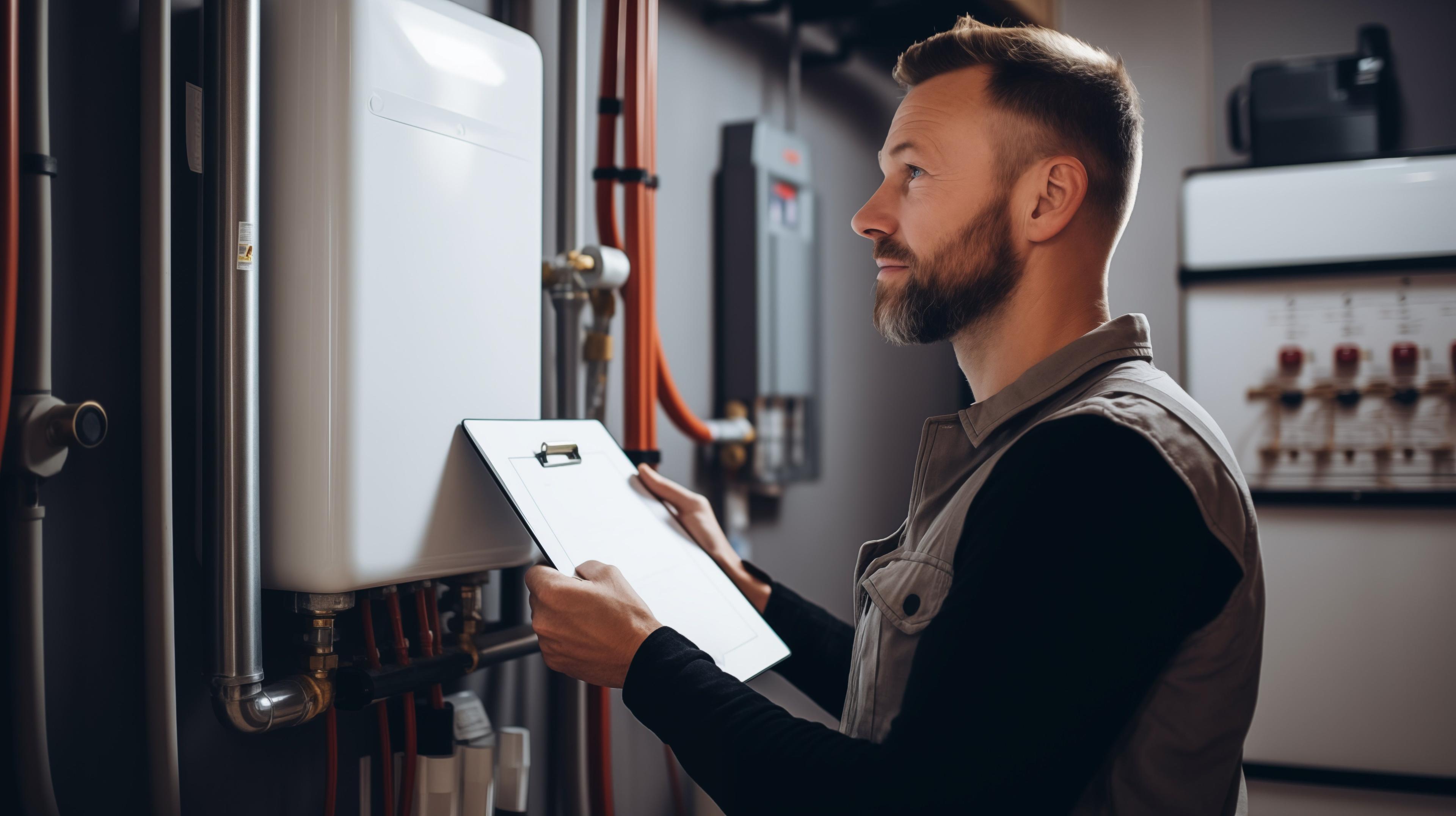Can I Replace My Boiler with a Furnace?

Many older homes, especially in the Northeast, rely on boilers for heating during the cold weather months. While boilers are a reliable heating source, they are more expensive to repair and maintain and come with increased safety risks compared to traditional heating systems such as forced air furnaces.
Although replacing your existing boiler with a modern boiler system is an option, you may want to consider upgrading to a furnace instead. Keep reading as HVAC.com, your trusted source for all things HVAC, explains signs your existing boiler needs to be replaced, what’s involved in replacing your boiler with a traditional gas furnace, and the benefits of doing so.
Signs Your Boiler Needs To Be Replaced
Before choosing to replace your boiler with a new one or a furnace, take into account the following factors:
Age
Like any HVAC system, boilers have a finite lifespan and must eventually be replaced. Residential gas boilers typically last about 15-20 years, though it’s not uncommon for a boiler to continue operating efficiently for up to 30 years. However, if your boiler is under 15 years old and still operating efficiently, consider delaying spending money on replacing it with a new boiler or furnace.
Increased Energy Costs
Have your energy costs increased significantly compared to a year or two ago without any corresponding weather event? Over time, boilers become less efficient. High energy costs may signal it’s time to replace your boiler system.
Frequent Repairs
HVAC repairs add up over time. If you find yourself needing boiler repairs two or more times a season, it may be worth upgrading to a new heating system. Investing in a new system could be more cost-effective than frequent repairs.
Damage or Leaks
If your boiler HVAC system is more than 15 years old and develops cracks, begins to rust, or crucial components deteriorate, boiler replacement may be warranted. Water leaks are another tell-tale sign your boiler needs to be repaired or replaced.
Inadequate Heating
If your boiler provides inadequate heating or it takes forever to warm the water up, you could be experiencing an issue with the boiler itself, the piping or the radiators. Contact a reputable HVAC contractor to inspect the system and make a recommendation.
Can I Replace My Boiler with a Furnace?
Boilers operate quite differently from traditional heating systems such as furnaces. While furnaces provide warmth by directly heating air and distributing it through homes via ductwork, boilers heat water to keep homes warm and comfortable throughout the winter. After the boiler heats the water, the steam is circulated through pipes and radiators or underfloor heating systems and into your home’s living areas.
You can replace your boiler with a forced air furnace. In some cases, the existing boiler, its piping, and radiators are removed, which can raise the overall cost of the project. However, it may be possible to remove the existing boiler and cap the pipes and radiators, leaving them in place to avoid extensive renovations. Afterwards, the HVAC contractor can install the new furnace, ductwork, and vents.
If your current boiler, piping and radiators are already deteriorating, it probably makes more sense financially to upgrade to a furnace.
Is it Worth Replacing Your Boiler with a Furnace?
Although you’ll pay more to completely upgrade your heating system from a boiler to a furnace, there are several advantages of doing so, including:
Ease of Installation
Furnaces are generally more affordable and easier to install, which will lower your HVAC labor costs. Almost every HVAC company installs furnaces, but it may be more difficult to find an HVAC contractor in your area who installs boilers.
Easier Maintenance
A boiler is generally a more complex type of HVAC system, making it more difficult and costly to repair and maintain. Boilers must be flushed and refilled periodically to remove sediment. Repairing and maintaining a furnace is a more straightforward process.
Additional Add-Ons
Modern furnaces are compatible with a variety of HVAC add-ons, including whole-house humidifiers, dehumidifiers, and air purification systems. These add-ons can improve the quality of the air inside your home which is especially helpful if you live with allergy or asthma sufferers.
Safer
Furnaces are generally considered safer than boilers. Boilers are more prone to water leaks, fires, and carbon monoxide leaks, especially if they have not received proper maintenance.
Which Type of HVAC System Should You Install?
Choosing to replace your aging boiler with a modern boiler or a forced air furnace is a difficult decision. It’s crucial to work with a qualified HVAC technician who can inspect your home and advise on the best type of HVAC system for your comfort and budgetary needs. When replacing your boiler, get several HVAC quotes for a new system.